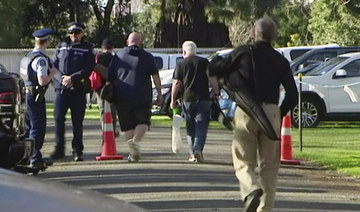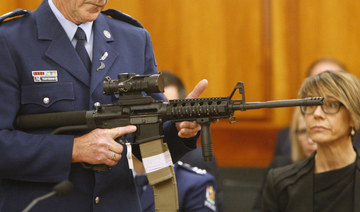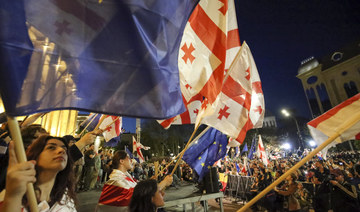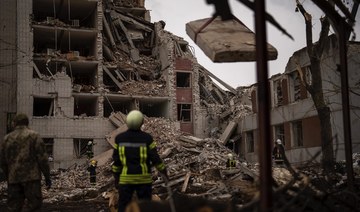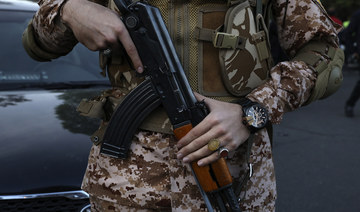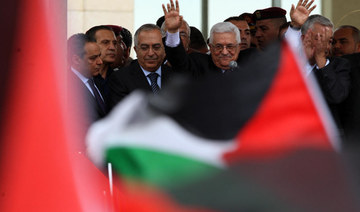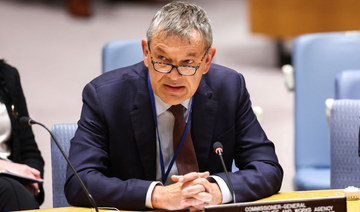WELLINGTON: New Zealand on Monday revealed plans to establish a firearm register and to overhaul its licensing systems for gun owners in the second set of gun law reforms introduced in response to mass shootings in the city of Christchurch.
The new legislation would tighten the rules for gun owners and dealers to get and keep a license, which would have to be renewed every five years, and prohibit visitors to New Zealand from buying a gun, Prime Minister Jacinda Ardern said in a press conference.
New Zealand banned military-style semi-automatic and assault rifles in the first phase of reforms introduced days after a lone gunman attacked Muslim worshippers at two mosques in Christchurch on March 15, killing 51 people.
NZ plans firearm register, tighter licensing amid gun law reforms
NZ plans firearm register, tighter licensing amid gun law reforms
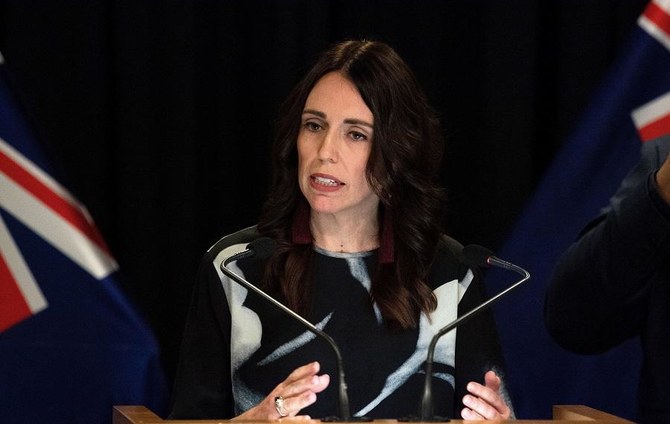
- The new legislation would tighten the rules for gun owners and dealers to get and keep a license
- The reforms were introduced days after a lone gunman attacked Muslim worshippers at two mosques in Christchurch on March 15, killing 51 people
Germany holds 2 over military base attack plot for Russia
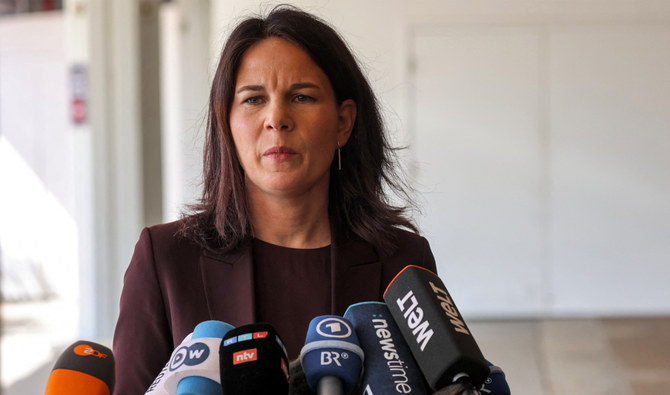
- NATO working on more air defenses for Ukraine, Stoltenberg says
BERLIN: Two German Russian nationals have been arrested in Germany on suspicion of plotting sabotage attacks, including on US military facilities, in what officials called a serious effort to undermine military support for Ukraine.
Authorities have searched the homes and workplaces of the two suspects who stand accused of working for a foreign secret service. One of them, identified as Dieter S., had since October 2023 discussed possible plots with a person linked to the Russian secret service, prosecutors said on Thursday.
Germany has become one of Kyiv’s biggest suppliers of military aid since Russian President Vladimir Putin ordered a full-scale invasion of Ukraine in February 2022, and is a major target for Russian spying operations, authorities have said.
“The suspicion that Putin is recruiting agents from us to carry out attacks on German soil is extremely serious. We will not allow Putin to bring his terror to Germany,” Foreign Minister Annalena Baerbock said.
Germany summoned the Russian ambassador over the arrests. Earlier, the Kremlin said it had no information about the issue.
Dieter S. had been prepared to carry out bomb and arson attacks on military facilities, including those operated by US forces, prosecutors said, adding that he took photos and videos of military transport and equipment.
A second person, Alexander J., began helping him from March at the latest, prosecutors said.
According to Spiegel magazine, the facilities included the Grafenwoehr army base in the southern state of Bavaria where Ukrainian soldiers receive training to use US Abrams tanks.
US, allied and partner training missions at Grafenwoehr, including the training of Ukrainians, continue, a US military spokesperson said, but referred inquiries about the arrests to the German authorities.
The prosecutors suspect Dieter S., whose last name has not been disclosed due to German privacy laws, was a fighter for Russian-backed forces in eastern Ukraine from December 2014 to September 2016 in the self-proclaimed Donetsk People’s Republic.
He was in possession of a firearm, prosecutors said.
In a separate case, prosecutors last month charged an officer in Germany’s military procurement agency with attempting to pass secret information to Russian intelligence. News of Thursday’s arrests coincided with a surprise trip by German Economy Minister Robert Habeck to Ukraine.
Germany also issued an urgent appeal this week for countries to help shore up Ukraine’s air defenses as Russian forces continue to pound Ukrainian cities and infrastructure.
“We will continue to provide massive support to Ukraine and will not allow ourselves to be intimidated,” Interior Minister Nancy Faeser said.
Meanwhile, NATO is working to send more air defense systems to Ukraine, Secretary-General Jens Stoltenberg said, adding that delays in providing such aid were harming Kyiv’s efforts to resist Russia’s attacks.
“We have compiled data about the different air defense systems we have in NATO and focused on the Patriot systems. And we are working with allies to ensure that they redeploy some of their systems to Ukraine,” he said in Italy.
Cameron tells Netanyahu UK will not ban IRGC: Report
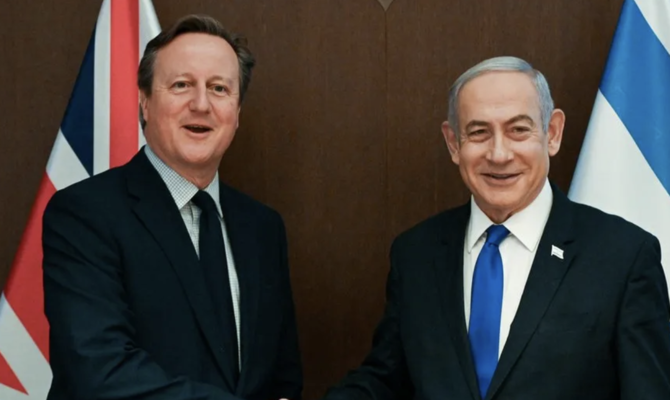
- Stance relayed during face-to-face talks between British FM, Israeli PM Wednesday
- ‘We need to be able to pick up the phone. If we proscribed them it would not help the situation’
LONDON: The UK will not proscribe Iran’s Islamic Revolutionary Guard Corps as a terrorist organization, the Daily Telegraph reported on Thursday.
The stance was reportedly relayed by UK Foreign Secretary David Cameron during a face-to-face meeting with Israeli Prime Minister Benjamin Netanyahu and Foreign Minister Israel Katz on Wednesday.
The Israeli government reportedly requested that the UK ban the IRGC following Iran’s drone and missile attack last week.
But Cameron, in what a source called a “blunt” response, told Netanyahu and Katz that doing so would hinder London’s ability to communicate with Tehran.
“We need to be able to pick up the phone. If we proscribed them it would not help the situation,” the source reported Cameron as saying.
If the IRGC were to be proscribed in the UK, it would make membership of it, attending its meetings, displaying its symbols or campaigning for it in the country illegal.
The move has been considered by the UK government for over a year, but Home Office officials have long warned that doing so would sever one of the few remaining diplomatic channels with Tehran. Instead, the IRGC has been sanctioned by the UK government on several occasions.
The US, which has banned the IRGC, has also suggested that the UK should proscribe it. The group’s navy was recently included in a new set of joint sanctions issued by London and Washington.
US to oppose Palestinian bid for full UN membership
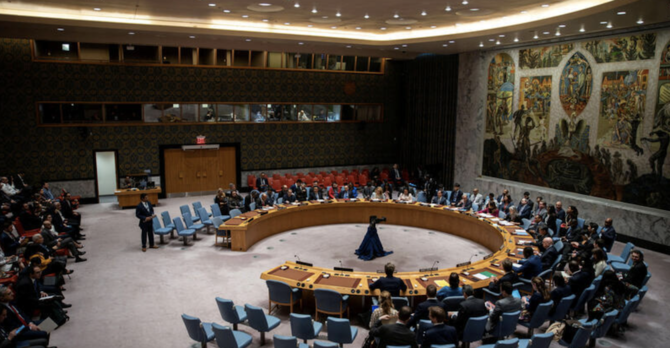
- 15-member council is scheduled to vote on a draft resolution
- Palestinians currently non-member observer state, de facto recognition of statehood
NEW YORK: The US will on Thursday vote against a Palestinian request for full United Nations membership, a US official told Reuters, blocking the world body from effectively recognizing a Palestinian state.
“It remains the US view that the most expeditious path toward statehood for the Palestinian people is through direct negotiations between Israel and the Palestinian Authority with the support of the United States and other partners,” the US official said.
The 15-member council is scheduled to vote on a draft resolution that recommends to the 193-member UN General Assembly that “the State of Palestine be admitted to membership of the United Nations.”
A council resolution needs at least nine votes in favor and no vetoes by the US, Britain, France, Russia or China to pass. Diplomats say the measure could have the support of up to 13 council members, which would force the US to use its veto.
“We have long been clear that premature actions in New York, even with the best intentions, will not achieve statehood for the Palestinian people,” the US official said.
The Palestinians are currently a non-member observer state, a de facto recognition of statehood that was granted by the UN General Assembly in 2012. But an application to become a full UN member needs to be approved by the Security Council and then at least two-thirds of the General Assembly.
The Palestinian push for full UN membership comes six months into a war between Israel and Hamas in Gaza, and as Israel is expanding settlements in the occupied West Bank.
“Recent escalations make it even more important to support good-faith efforts to find lasting peace between Israel and a fully independent, viable and sovereign Palestinian state,” UN Secretary-General Antonio Guterres told the Security Council.
“Failure to make progress toward a two-State solution will only increase volatility and risk for hundreds of millions of people across the region, who will continue to live under the constant threat of violence,” he said.
DIRECT TALKS
Israel’s UN Ambassador Gilad Erdan said Palestinians failed to meet the criteria to become a full UN member, which he outlined as: a permanent population, defined territory, government, and capacity to enter relations with other states.
“Who is the council voting to ‘recognize’ and give full membership status to? Hamas in Gaza? The Palestinian Islamic Jihad in Nablus? Who?” Erdan asked the Security Council.
He said granting full UN membership to the Palestinians “will have zero positive impact for any party, that will cause only destruction for years to come, and harm any chance for future dialogue.”
The UN Security Council has long endorsed a vision of two states living side by side within secure and recognized borders. Palestinians want a state in the West Bank, east Jerusalem and Gaza Strip, all territory captured by Israel in 1967.
The Palestinian Authority, headed by President Mahmoud Abbas, exercises limited self-rule in the West Bank. Hamas ousted the Palestinian Authority from power in Gaza in 2007.
Ziad Abu Amr, special envoy of Abbas, asked the United States: “How could this damage the prospects of peace between Palestinians and Israelis? How could this recognition and this membership harm international peace and security?“
“Those who are trying to disrupt and hinder the adoption of such a resolution ... are not helping the prospects of peace between Palestinians and Israelis and the prospects for peace in the Middle East in general,” he told the Security Council.
Abu Amr said full Palestinian UN membership was not an alternative for serious political negotiations to implement a two-state solution and resolve pending issues, adding: “However, this resolution will grant hope to the Palestinian people hope for a decent life within an independent state.”
After COVID, WHO defines disease spread ‘through air’
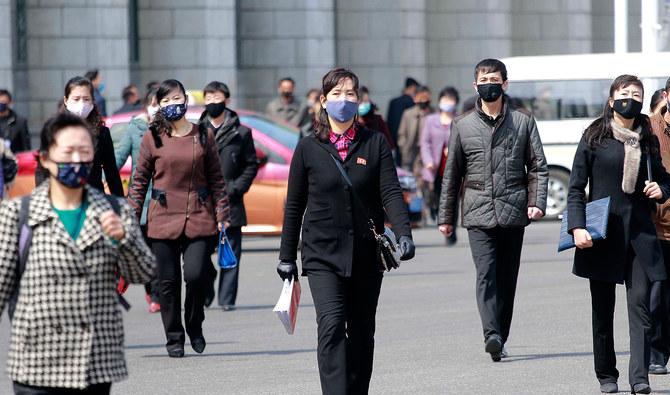
- Agencies have historically required high levels of proof before calling diseases airborne, which required stringent containment
- Past disagreements also centered around whether infectious particles were “droplets” or “aerosols” based on size
LONDON: The World Health Organization and around 500 experts have agreed for the first time what it means for a disease to spread through the air, in a bid to avoid the confusion early in the COVID-19 pandemic that some scientists have said cost lives.
The Geneva-based UN health agency released a technical document on the topic on Thursday. It said it was the first step toward working out how to better prevent this kind of transmission, both for existing diseases like measles and for future pandemic threats.
The document concludes that the descriptor “through the air” can be used for infectious diseases where the main type of transmission involves the pathogen traveling through the air or being suspended in the air, in line with other terms such as “waterborne” diseases, which are understood across disciplines and by the public.
Almost 500 experts contributed to the definition, including physicists, public health professionals and engineers, many of whom disagreed bitterly over the topic in the past.
Agencies have historically required high levels of proof before calling diseases airborne, which required very stringent containment measures; the new definition says the risk of exposure and severity of disease should also be considered.
Past disagreements also centered around whether infectious particles were “droplets” or “aerosols” based on size, which the new definition moves away from.
During the early days of COVID in 2020, around 200 aerosol scientists publicly complained that the WHO had failed to warn people of the risk that the virus could spread through the air. This led to an overemphasis on measures like handwashing to stop the virus, rather than focusing on ventilation, they said.
On Wednesday, Democrats in the Arizona state House failed to repeal a controversial ban on abortion that dates back to 1864 after they couldn’t muster Republican support.
By July 2020, the agency said there was “evidence emerging” of airborne spread, but its then chief scientist Soumya Swaminathan – who began the process to get a definition – later said, opens new tab the WHO should have been more forceful “much earlier.”
Her successor, Jeremy Farrar, said in an interview that the new definition was about more than COVID, but he added that at the beginning of the pandemic there was a lack of evidence available and experts including the WHO acted in “good faith.” At that time, he was head of the Wellcome Trust charity and advised the British government on the pandemic.
Farrar said getting the definition agreed among experts from all disciplines would allow discussions to begin about issues such as ventilation in many different settings, from hospitals to schools.
He compared it to the realization that blood-borne viruses like HIV or hepatitis B could be spread by medics not wearing gloves during procedures.
“When I started out, medical students, nurses, doctors, none of us wore gloves to take blood,” he told Reuters. “Now it is unthinkable that you wouldn’t wear gloves. But that came because everyone agreed on what the issue was, they agreed on the terminology… [The change in practice] came later.”
Reuters photographer wins World Press Photo of the Year with poignant shot from Gaza
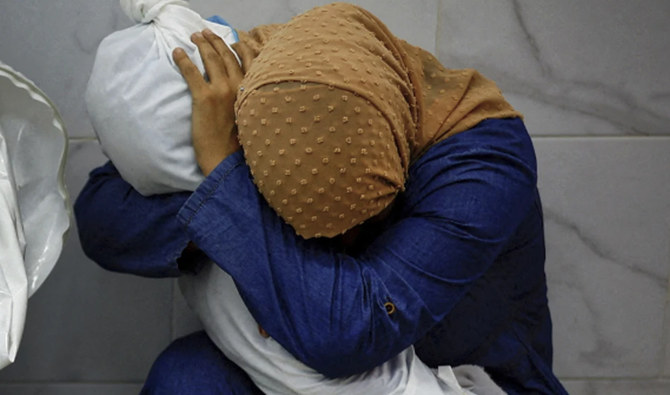
- Mohammed Salem won for heartrending photo of a Palestinian woman cradling the body of her young niece
- Inas Abu Maamar holds five-year-old Saly, killed along with her mother and sister when Israeli missile struck their home
PARIS: Reuters photographer Mohammed Salem captured this year’s prestigious World Press Photo of the Year award Thursday with a depiction of loss and sorrow in Gaza, a heartrending photo of a Palestinian woman cradling the body of her young niece. The photograph, taken in Khan Younis just days after Salem’s own child was born, shows 36-year-old Inas Abu Maamar holding five-year-old Saly, who was killed along with her mother and sister when an Israeli missile struck their home.
Salem, who is Palestinian, described this photo filed Nov. 2 last year, as a “powerful and sad moment that sums up the broader sense of what was happening in the Gaza Strip.”
The image ”truly encapsulates this sense of impact,” said global jury chair Fiona Shields, The Guardian newspaper’s head of photography. “It is incredibly moving to view and at the same time an argument for peace, which is extremely powerful when peace can sometimes feel like an unlikely fantasy,” she added.
The World Press Photo jury praised the shot’s sense of care and respect and its offering of a “metaphorical and literal glimpse into unimaginable loss.”
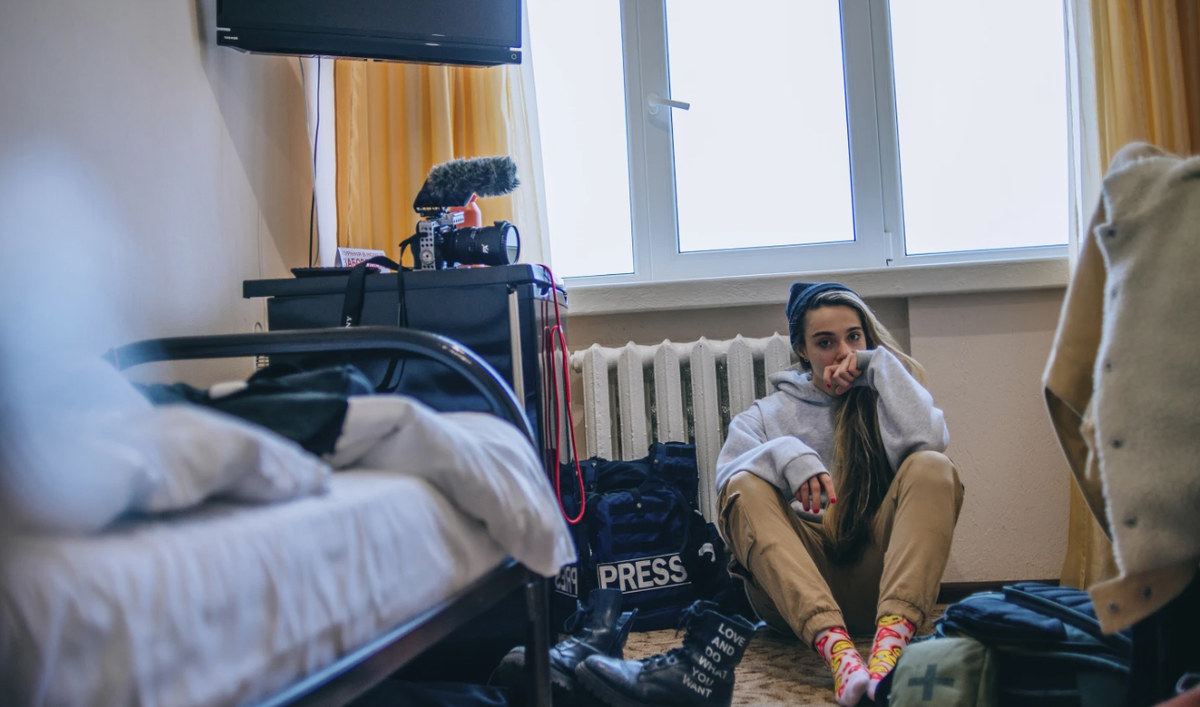
This is not the first time Salem has been recognized for his work on the Israeli-Palestinian conflict; he received a World Press Photo award more than a decade ago for another depiction of the human toll of conflict in the Gaza strip.
In the three other global categories announced Thursday, South Africa’s Lee-Ann Olwage won Photo Story of the Year for her touching series “Valim-babena,” featured in GEO magazine. The project focused on the stigmatization of dementia in Madagascar, a topic she explored through intimate portraits of “Dada Paul” and his family. Lack of public awareness surrounding dementia means that people displaying symptoms of memory loss are often stigmatized.
In the series, “Dada Paul,” who has lived with dementia for 11 years, is tenderly cared for by his daughter Fara. One of the standout images in the series shows him preparing for church with his granddaughter Odliatemix, capturing moments of normalcy and warmth amidst the challenges of dementia.

Photographer Alejandro Cegarra, a Venezuelan native who migrated to Mexico in 2017, won the Long-Term Project award for “The Two Walls,” published by The New York Times and Bloomberg. Cegarra’s project, initiated in 2018, examines a shift in Mexico’s immigration policies, which have moved from being historically open to enforcing strict regulations at its southern border. The jury said the photographer’s perspective as a migrant gave it a “sensitive,” human-centered perspective, according to a press release.
Julia Kochetova of Ukraine won the Open Format award for “War Is Personal.” The project stood out from coverage of the ongoing conflict by offering a personal look at the harsh realities of war. On a dedicated website, she merged traditional photojournalism with a diary-like documentary style, incorporating photography, poetry, audio clips and music.
The Associated Press won the Open Format award in the regional Africa category with the multimedia story “Adrift,” created by journalists Renata Brito and Felipe Dana. The story investigates the fate of West African migrants who attempted to reach Europe via a treacherous Atlantic route but ended up on a ghost ship discovered off Tobago. The team’s compelling use of photography, cinematography and detailed narrative, enhanced by expert design and multimedia elements, highlights the perils faced by migrants and the human stories behind global migration issues.
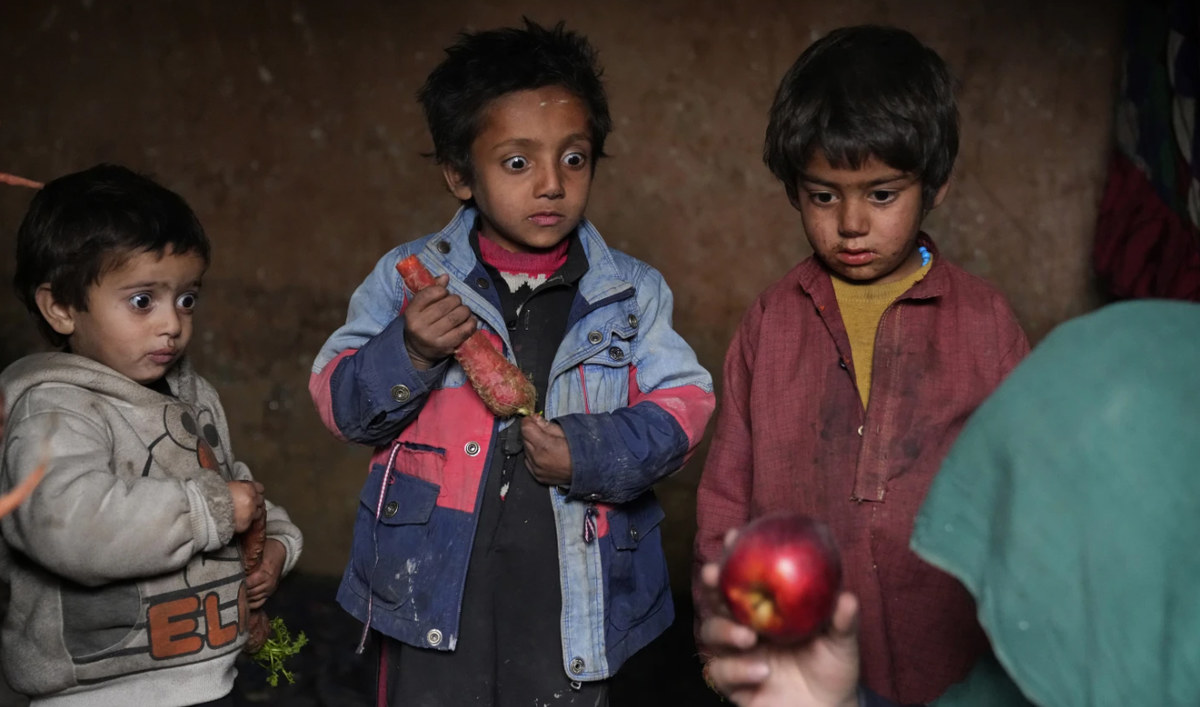
The Associated Press’ Ebrahim Noroozi won the Asia Stories award for his series “Afghanistan on the Edge,” which documents the country since the Taliban took over in August 2021.
World Press Photo is an independent, nonprofit organization based in the Netherlands, founded in 1955.



